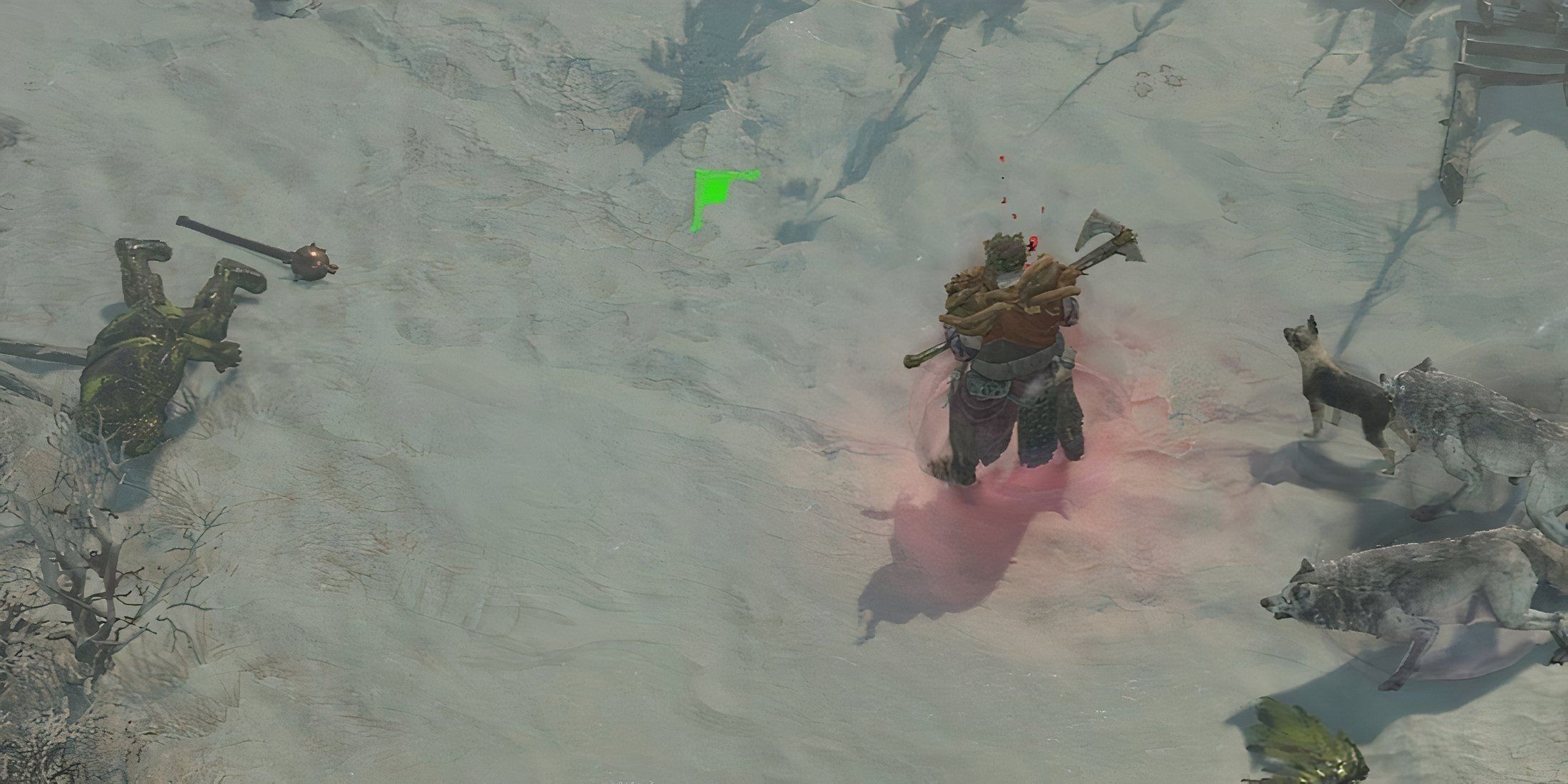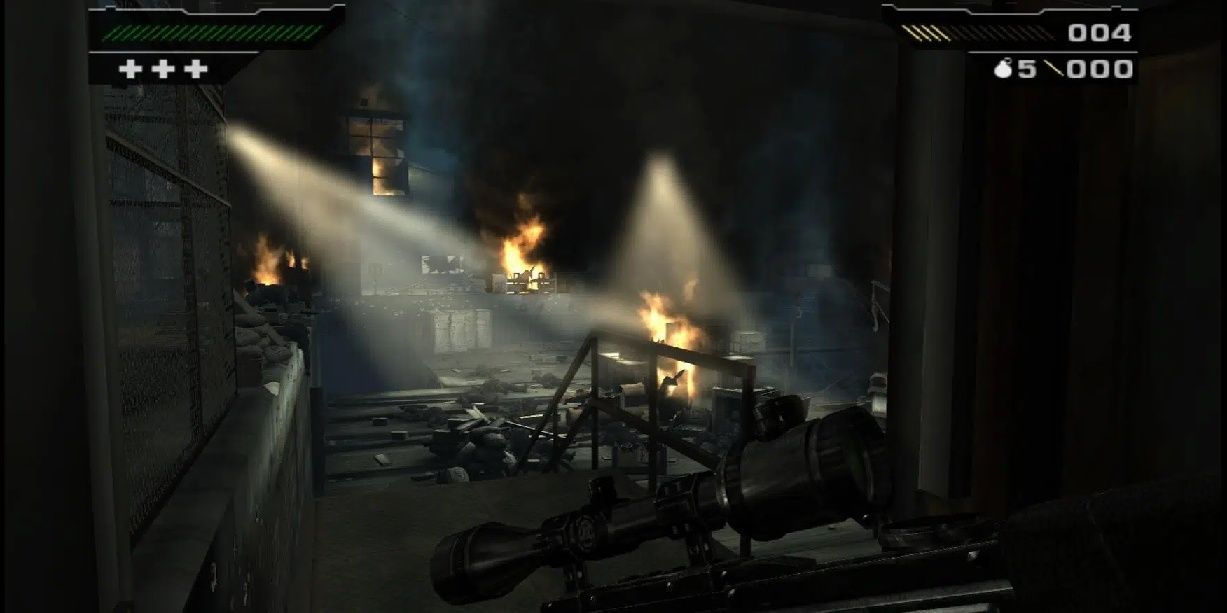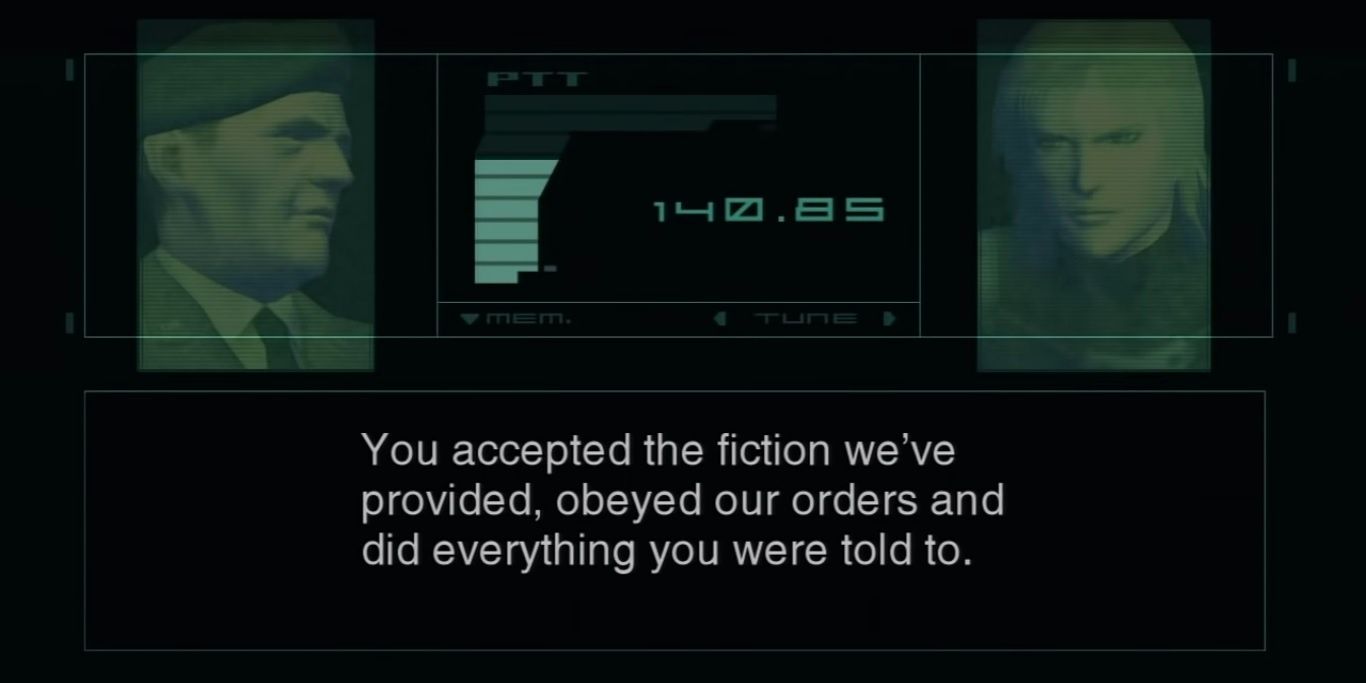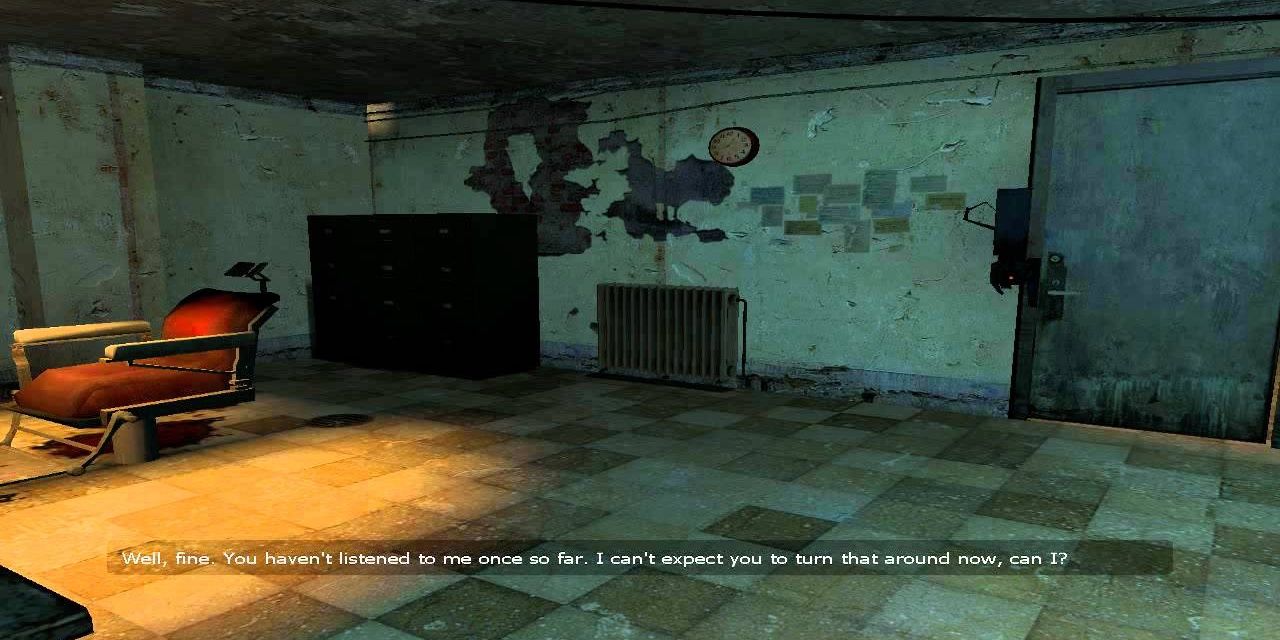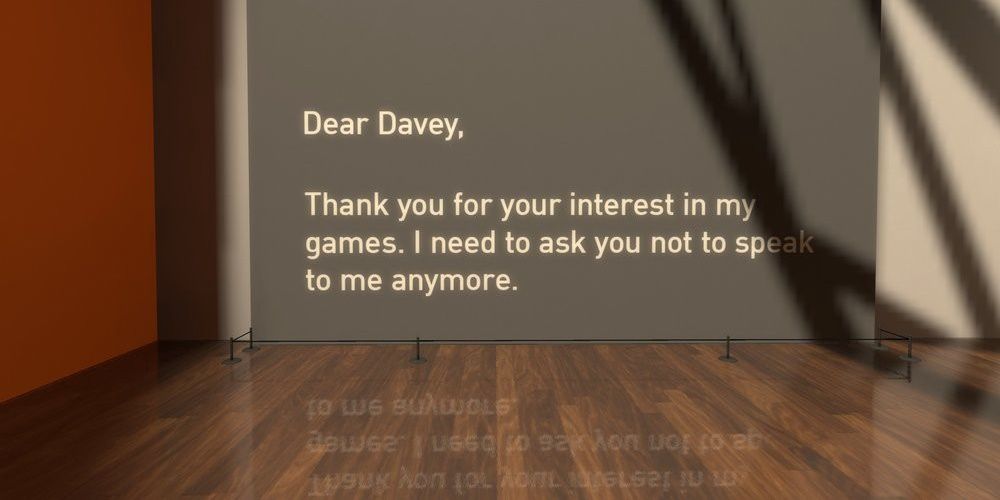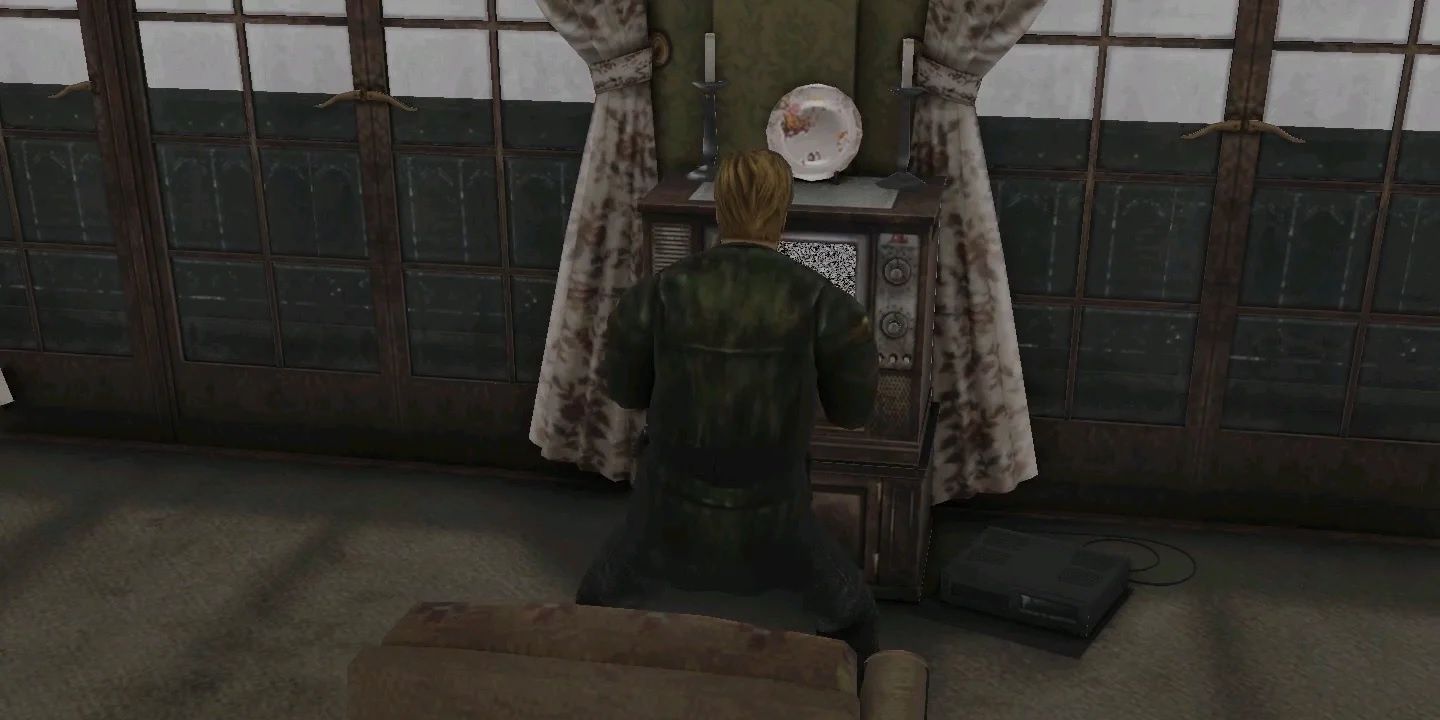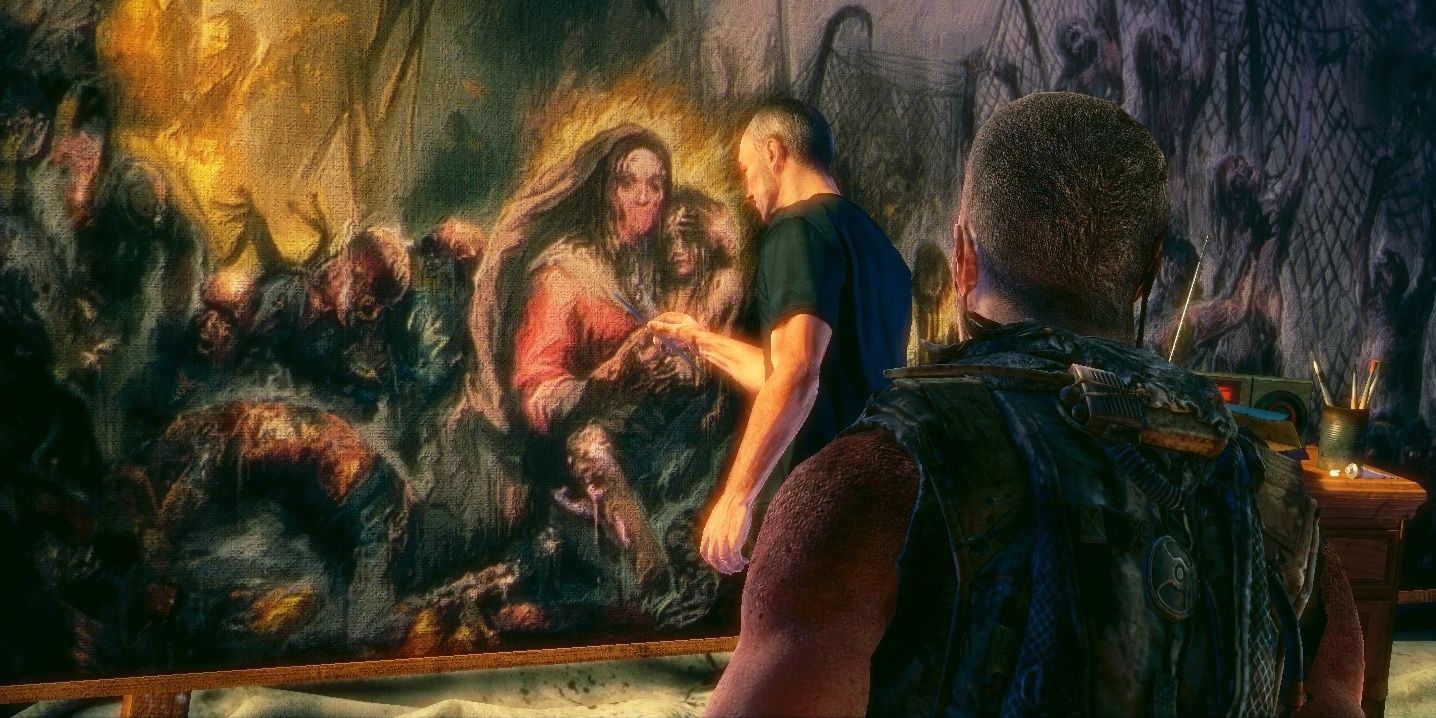Video games didn’t have much of a plot back in the past (and arguably still don’t in some cases). Players could trust the game when it said the princess was in another castle, that it was dangerous to go alone, or that they needed to do a barrel roll. Beyond deliberately cryptic point & click games, or cruel text adventures, the narration was straightforward.
But as the games got more advanced, so did the players' expectations. Developers had to think more about how their games tell their stories. Some games got more cinematic, while others stayed as simple as the old games. Then these games twisted their tales by revealing its narrators weren't so reliable, and the player had to unravel them on their own.
8 Prince of Persia: The Sands of Time
This classic reboot of the original Prince of Persia is largely straightforward, as the Prince must use his time-manipulating dagger to foil the evil Vizier with the help of Princess Farah. However, the difference is that the Prince is narrating his tale to someone. The gameplay is supposed to be his recollection of events.
So, when the player screws up or dies, the Prince jabbers over the Continue screen like he misremembered something. With the game's time rewinding mechanics, maybe it's not so odd for him to forget that he didn't actually fall down a chasm or get stabbed to death. Still, it's funny for the Prince to be unaware that he actually survived his adventure.
7 Black
One issue with video game stories is that the gameplay doesn’t always match the story. Either the player will be more bold than their character in cutscenes (Lara Croft isn't so shy about killing enemies during gameplay in 2013's Tomb Raider). Likewise, the game mechanics can take players out of the story (why can't Cloud use a Phoenix Down on Aerith?). The 2006 first-person shooter Black found a way around that.
It frames the story as lead character Jack Kellar responding to an interrogation. Except his recollection is a little skewed. Respawning enemies? NPCs popping in and out without explanation? The level design seeming more like…well, a video game level? It’s just his stressed-out perspective. The reality may have been more grounded. But to someone stuck in the middle of the action? It certainly felt more testing than the average skirmish.
6 Shadow The Hedgehog
Despite seemingly dying in Sonic Adventure 2, Shadow came back as an amnesiac in Sonic Heroes, unaware of what he is, let alone who he was. Is he a robot duplicate? Or is he the real Shadow the Hedgehog? His friends won’t tell him for some reason, so why not randomly trust the leader of a surprise alien invasion?
Shadow the Hedgehog offers players 10 different endings where Shadow realizes one ‘truth’ about himself or another. Maybe he was a robot all along, humanity's worst nightmare, its hero, or anything in between those three points. Players have to get all 10 endings before they get the 'Last Way', which reveals the most heroic path was canon. Thus making the other 9 paths a waste of time.
5 Metal Gear Solid 2
The Metal Gear series has swerved its fans so often that they end up going off the rails over the most straightforward events. See Metal Gear Solid 5 exposing its first mission as largely false at the end. However, even that game pales next to Metal Gear Solid 2 in messing with the player's expectations. It starts off simple enough: Raiden is a rookie agent led by Colonel Campbell to save the US President from terrorists and avert a nuclear catastrophe.
Then he has to kill the President to stop that nuclear launch because they need his vital signs. He ends up dead anyway, but the terrorists don't need him because they have a hydrogen bomb! Actually, no they don't. They weren't after nukes, but an undersea fortress that controls the internet. Then Campbell turns out to be an AI within that fortress that mocks Raiden (and thus the player) for following the narrative blindly. It's a lot to take in.
4 The Stanley Parable
MGS2 isn’t the only game that makes the narrator an antagonist. The Stanley Parable follows its titular lead as their office work gets interrupted by a power cut. He leaves his office, only to discover he's all alone in the building. It’s up to him, and thus the player, to find out what happened…if they want. They could go right instead or left, explore other rooms, or even stay in their office.
The only force urging them to stick to the script is the narrator. He has some flexibility, and will accommodate the player's actions towards one of many outcomes. It's just that some of those outcomes can lead to serious consequences, like the Serious Room if the player tries to input server cheats. The only way the player can 'beat' the narrator is to follow the script, or do so many random things that the narrator joins in the confusion.
3 The Beginner’s Guide
Made by one of the co-creators of The Stanley Parable, The Beginner’s Guide has Davey investigate game developer Coda and his work in order to figure out what happened to him. Namely, why his work got progressively darker until he went into seclusion and stopped creating games. While the game is open-ended, there are conclusions that don't paint Davey in a good light.
It’s suggested Davey had an active role in Coda’s decline: tweaking his work, showing them to others and publishing them without his permission. He's oblivious to Coda's distress until he calls it quits, disappears, and tells Davey to leave him alone. That seems like a clear enough message, but Davey remains oblivious until the end. He burned his bridge, and is either coping with it by repeatedly tweaking Coda's old work, or genuinely doesn't know what he did.
2 Silent Hill 2
Speaking of oblivious figures, protagonist James Sunderland tells the player he’s gone to Silent Hill because he got a letter from his late wife Mary saying she’s there, waiting for him at their special spot. Aside from dead people not usually being able to write letters, he goes there to see what’s going on regardless. She supposedly died from cancer, but maybe she hung on and snuck out of the hospital?
Not quite. The letter was written a long time ago. Stressed by her condition and outbursts, James smothered her to death in her bed. His cover story was his way of keeping that guilt at bay, and Silent Hill made him face it straight on with its trials, monsters, and other horrors. He was only fooling himself too, as the few people he meets in town like Angela and Eddie are somewhat aware of who he truly is. The only ones in the dark are himself and the player until the end.
1 Spec Ops: The Line
Delta Force Captain Martin Walker leads his squad into war-torn Dubai to find survivors of an attempted coup d’etat by a US Battalion unit in the area, and to discover what became of their Lieutenant Colonel John Konrad. Walker’s objectives involve making hard decisions, like committing atrocities. But they have to be made in order to get the truth out of the taunting Konrad. Only for that truth to be that he died before Walker set foot in Dubai.
The ‘Konrad’ Walker has been dealing with was a hallucination taunting him for his misdeeds. While some of Walker's recollections were all too real, others were as fake as Konrad. How can players tell the difference? The fake ones transition by fading to white, while the real ones fade to black. Even if players do their best, there's no good ending for them to feel better about themselves with. Just like Walker, they’re doomed to follow his psychosis to the bitter end.


